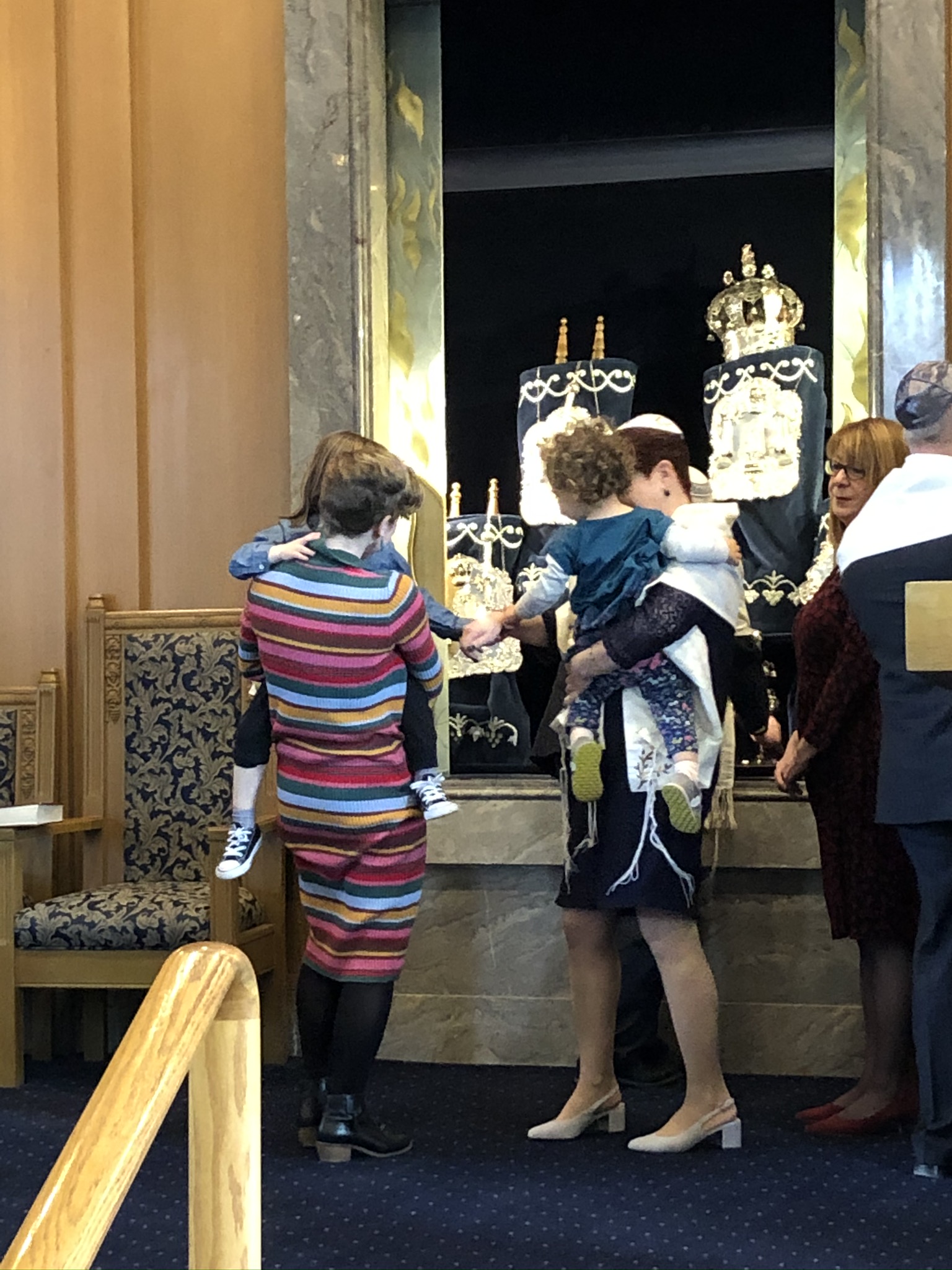
Bubbah’s Bat Mitzvah
When my mother should have been called to the Torah as a Bat Mitzvah in 1960, she learned that her synagogue limited such honors and responsibilities to boys. My mother was merely allowed to lead a small Friday night service and to write and recite an essay about a woman from the Bible or Jewish history who inspired her. I knew this—and so many other injustices she and the women of her generation confronted as pioneers in educational and professional spaces—affected my mother, but I did not truly understand its impact on her psyche until I stood in that synagogue and saw her on the bimah, wrapped in a tallis, proudly and nervously delivering her Torah reading and Haftarah portion. In a program distributed to the congregation at the service, my mother wrote that she decided to become a septuagenarian Bat Mitzvah girl because she “finally could.” She noted that despite having been identified as the top student in her Hebrew school class, she was not permitted to receive the award because, again, only boys were eligible to receive it. She wrote about how she watched me, her only daughter, lead an entire Shabbat service, including seven Torah portions and a Haftarah, as a Bat Mitzvah, and thought to herself, How wonderful that she is able to do something I was never allowed to do.’ I realized in that moment how much I took for granted.
As we assembled in the sanctuary, chatting and greeting family and friends, the same synagogue where my parents were married nearly 50 years earlier, the congregants drew quiet as my mother and the synagogue leadership approached the bimah. My two toddlers were spellbound, and the solemn silence was immediately broken by my son’s voice yelling “Bubbah!” echoing through the sanctuary, followed by nervous laughter. Later, my children followed me on to the bimah to open the ark. My children marched, hand in hand, through the synagogue’s aisles with my mom as she carried the Torah. I watched congregants whisper “Yasher Koach” and “Mazel tov” to her, just as they would for any Bat Mitzvah, but it struck me as entirely different. For a woman so fundamentally defined and shaped by her Jewish identity and so deeply passionate about Jewish life and learning, I felt a mixture of pride and sadness that my mom had been denied this rite of passage for so long. I never thought much about how her experience as a second-class citizen within her childhood synagogue—so common at the time—stayed with her. I asked her afterwards how such treatment made her feel. She told me that, while she knew it was deeply unfair, it was only bearable because her father, my beloved Zayde, who recently passed away at 94, always believed in her and consistently pushed back—even then—against societal norms and limitations placed on girls. At 12, I went through the motions of a Bat Mitzvah because I was told to and because I was expected to. My mother always wished she could, and doing so now was a radical act of faith, defiance, and reclamation.
Being Jewish is complicated. As a white secular Jewish woman with a religious upbringing, I enjoy enormous privilege, generational security and wealth, and access to institutions closed or out of reach to many. And yet, in this climate, there is still a sense that I and my family don’t belong, are at risk of harm, and are being treated as political pawns. I am horrified by this Administration, its alliance with White nationalists, xenophobes, and anti-Semites, its perpetuation of anti-Semitic tropes, its politics surrounding Israel, and its othering of Jews, along with Muslims, immigrants, and LGBTQ people (and, now, in the midst of the worst global pandemic of our lifetimes, people of Asian descent).
Recently, as my ebullient three-year-old son sang Hanukkah songs on an otherwise quiet subway car over the holiday break (“One little latke sizzling in the pan…”), I glanced over at my husband in momentary panic—should I tell my son to stop singing? Will we draw unkind or possibly even violent reactions? I never conceived of this as a possibility before, but just last year, as I dropped him off at his small storefront Jewish preschool in Brooklyn, I uncovered a swastika on its door. These incidents, and the news of violent attacks on our Jewish brethren in Jersey City, Pittsburgh, Poway, and Monsey, wear a mother, a daughter, a proud Jewish woman down.
Perhaps that it is why I found my mother’s fulfillment of a decades-long dream so deeply moving. It was a defiant, proud, feminist, and spiritual act. Not many grandchildren get to watch their Bubbah become a Bat Mitzvah, and I will always remind my children of that sacred moment. And this winter, we will sing Hanukkah songs proudly on the subway again.
One comment on “Bubbah’s Bat Mitzvah”
Comments are closed.




Congratulations to my old friend Meryl on becoming a Bat Mitzvah! Mazel tov!